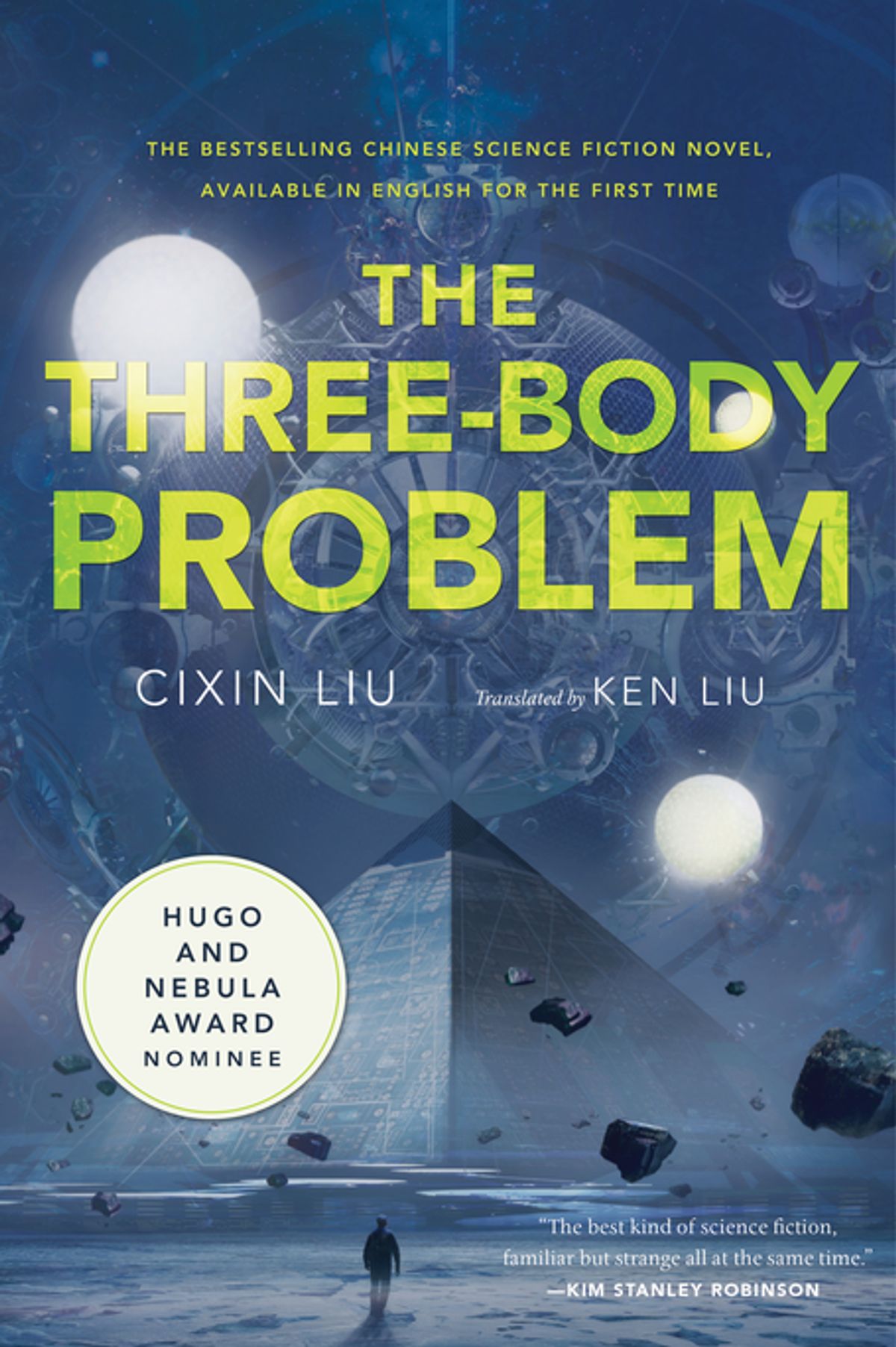I like science fiction. Isaac Asimov and Arthur C Clarke are amongst my favourite authors. When I read sci-fi, I am looking for novel ideas of what else is possible in science. As many of the prescient sci-fi authors have shown, their ideas are not just castles in air. Some of the concepts in Asimov’s novels are very deep, like the three laws of Robotics. Others are more speculative – for instance the science of psychohistory on which The Foundation Series was based. I get excited reading about such concepts and I am always left wanting for more. Many times I feel that these books do not have enough hardcore science for my taste. This is understandable because they have to sell. Stephen Hawking was told by his publisher that every equation in A Brief History of Time would halve the sales. He settled for one : E = mc².
With this background, it was a pleasant surprise to read The Three Body Problem, a sci-fi novel by Chinese author Cixin Liu. The Three Body Problem has been a best-seller in China and it became hugely popular all over the world when its translation won the prestigious Hugo award. Its first stage adaptation has just debuted and news is that Amazon is going to produce a TV series on it. What I find most amazing about The Three Body Problem is the fact that it became so popular in spite of so much hardcore science in it.
At its core, the plot of The Three Body Problem is an old one. Battle of an alien civilization against humanity. The story starts against the backdrop of cultural revolution in China. A fifteen year old girl is killed while protesting against the Red Union. A physics professor is tortured to death by Red Guards in front of a large crowd. Fast forward forty years and we meet the daughter of the physicist Ye Wenjie, who is working on a secret army project. As the story progresses, we are confronted by some fundamental questions in Physics. Can everything about the universe be known simply by observation and experiments? Particularly interesting are two hypotheses – the shooter hypothesis and the farmer hypothesis. In shooter hypothesis, a hunter shoots at a target creating a hole every ten centimetres. Intelligent beings living on the target propose a law : there is a hole in the universe at every ten centimetres. In farmer hypothesis, a farmer feeds his turkeys at 11 am everyday. A scientist turkey hypothesizes : food arrives at 11 am everyday. On thanksgiving day, food does not arrive. Instead, the farmer collects the turkeys and kills them all.
Wang is a scientist researching on nanomaterials – materials composed of very small particles that have extraordinary properties like high strength, low weight etc. Paths of Wang and Ye Wenjie cross and Wang discovers that Ye Wenjie was the first human on Earth to send and receive a transmission from an extraterrestrial civilization. The aliens are on the nearest star system Alpha Centauri and they are called Trisolarians. Trisolaris is so named because it has three suns. These three suns have a complicated trajectory and as a result there are no fixed seasons on Trisolaris, only stable periods followed by extreme weather conditions. Trisolarians have very advanced technology and they are looking for a new home to conquer. They find it on Earth.
The story takes many dazzling twists and turns, characters enter and exit. And in the midst of all this, the reader is exposed to some brilliant ideas of futuristic science. We live in a four dimensional world – three dimensions for space and one for time. According to one theory, there are seven more dimensions, making it an eleven dimensional space. What if we could manipulate the rest of these dimensions? Turns out that the Trisolarians have achieved the capability of manipulating higher dimensions. Using this, they unfold a proton in two dimensions so that it becomes a vast surface that consumes all of Trisolarian sky. Then they build a quantum computer with four such protons – two of them on Solaris and two on Earth. These computers are able to communicate instantly, without any time lag.
In the foreword, Liu Cixin talks about his childhood. In the village in rural China where he grew up, there was no electricity and China had yet to become polluted. The Milky Way was clearly visible every night. As he became older, he began to learn about planets, stars, and the vast distances between them. He struggled to grasp the vastness behind the concept of light-year. And it was then that he discovered his special talent. Units such as one light-year which are unfathomable to everyone else took on concrete forms in his mind. He could visualise them and play with them.
Progress in science is always slow and takes time. This does not mean that our imaginations should be limited by it. The Three Body Problem is a journey into what science may look like in a couple of centuries from now. Cixin Liu is being heralded as Arthur C Clarke of China. I am looking forward to reading his other books to see how far this comparison holds.
David Benioff, D. B. Weiss and Alexander Woo have created Three Body Problem series for Netflix. David Benioff and D. B. Weiss are the creators of Game of Thrones while Alexander Woo is best known for writing several episodes of the HBO drama series True Blood.



